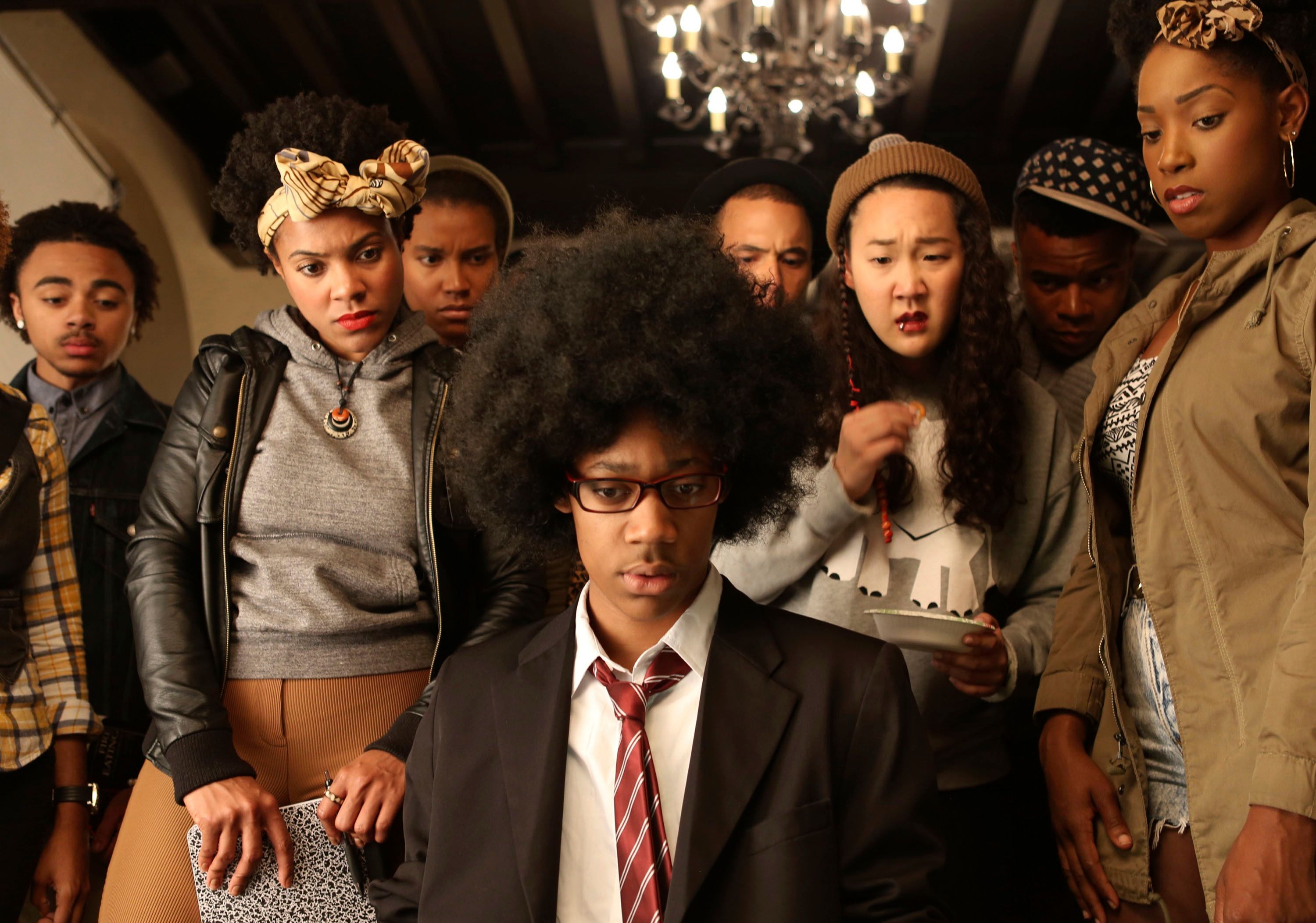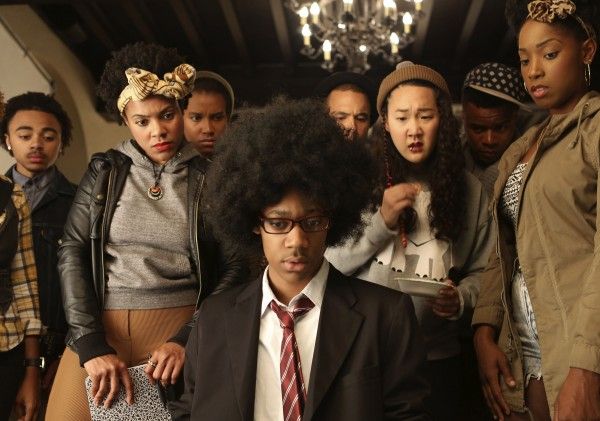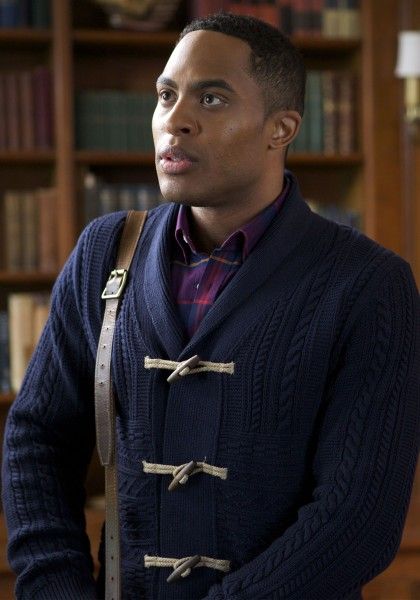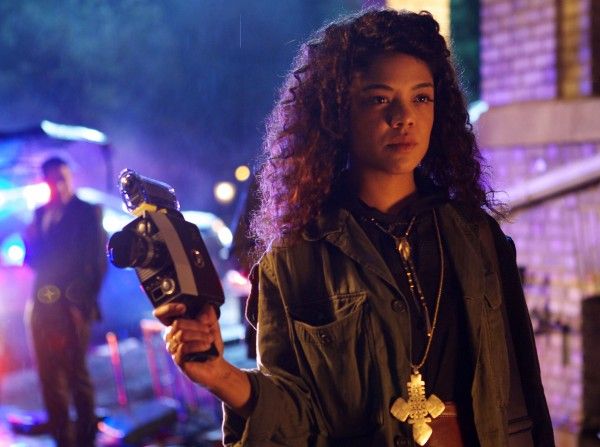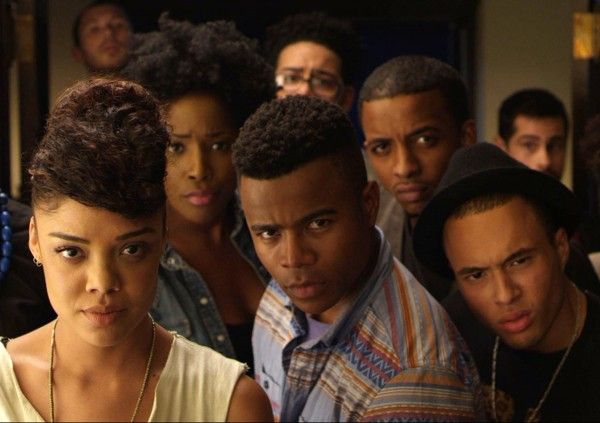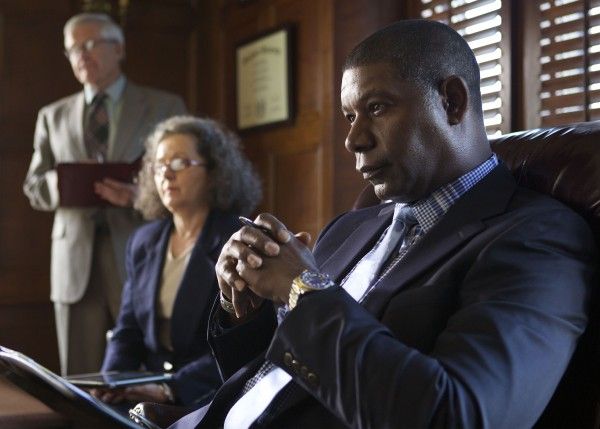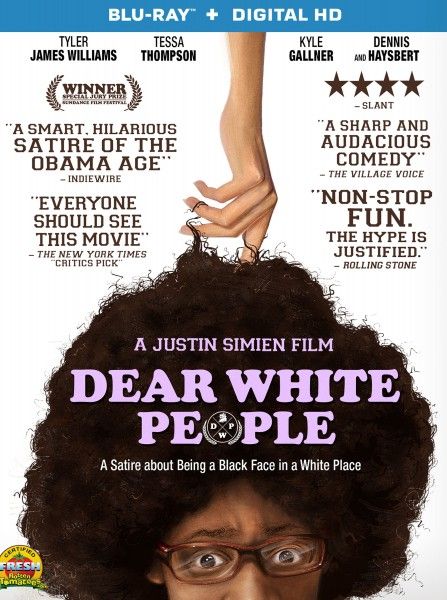First-time feature filmmaker Justin Simien made a splash with Dear White People, now available on Blu-ray/DVD, a smart, refreshingly honest comedy loosely based on his own experiences as an undergraduate at a predominantly white university. The provocative subject matter sparked conversations and earned Simien a spot on Variety’s annual “10 Directors to Watch” list.
During this exclusive phone interview with Collider, to talk about the release of the film on Blu-ray/DVD (which includes deleted scenes, outtakes and a making of featurette), writer/director Justin Simien talked about only just wrapping his head around the fact that he made and released a movie, how honesty comes naturally in his writing, that the key to tackling sensitive subjects is not treating them sensitively, the biggest lessons he learned from making this film, deleted scenes and special features, the importance of making contact with your own authenticity and voice, what he might do next, and his desire to make the film Make a Wish with Anthony Mackie, sometime this year.
Collider: Going from an idea to the reality of making it, and then finishing it and turning it into what we see now, how big of an accomplishment does the entire experience feel like, now that you’ve had some time away from it?
JUSTIN SIMIEN: It’s so funny that you ask that because I think I just realized what I did. We were going so fast that there really wasn’t time to pause and reflect, ever. Once we started shooting the movie, we went immediately into post-production to make Sundance. And then, there was Sundance and trying to sell the film. And then, there was promoting the film and marketing. It was just on and on and on and on. And then, there was the book that I wrote. There was a lot of go, go, go, go go. Honestly, I swear to you, only as recently as a month ago, I took a shower, walked out of my shower, and in the hallway is my poster. I just saw, as if it wasn’t my movie, and it hit me, “I made a movie, it’s in the world, it has a poster that’s hanging on my wall, and people know what it is.” It’s something that totally started as a crazy daydream when I was a senior in college, sitting at the lunch table, thinking about what my first movie would be. That’s the first time that that really hit me. It’s huge, and I’m just now starting to wrap my head around it.
Obviously, you can’t please everyone, and there will always be people who don’t like something, but regardless of what people might have said about the film, which was actually largely positive, it provoked conversations. Was that what you were hoping for, and was that more important to you, than whether the reviews were specifically positive or negative?
SIMIEN: Well, I wanted to make a great movie. I didn’t want to just throw a bomb in the theater. But I think great movies do promote conversation, great movies are honest, and great movies are sometimes polarizing. I wanted to make a great movie, truly. That’s what I wanted to do. I was not expecting the reviews to be that glowing. Critics were very kind to the film. The part that’s disheartening to me still are the people who go on the IMDB page or the iTunes page and give it one star, but haven’t seen it. I find that part a bit unfortunate. But a title like Dear White People, which is not aggressive in a particular way – it’s not Dear White People, Y’all Stupid – can provoke such outrage that they don’t even see what it is that they’re criticizing. That, I didn’t expect. That was interesting. I made a mental note of that, and that might end up in something, in the future. I don’t know. But by and large, I was very happy with the reaction that the film got from people. That was cool to see, and very satisfying.
You clearly had things you wanted to say and explore with this film. During the initial writing process, did you have to work at not censoring yourself and being as real as possible, or did that honesty come naturally for you?
SIMIEN: The honesty comes naturally for me. Whenever there’s a new idea where I go, “I don’t know if I should put that in there,” there’s a louder voice in me that says, “Maybe you should put that in there.” I hooked onto the fact that, with this movie, we had to be honest and we had to turn the screw, and get realer and realer and more complicated. I think that just comes naturally to me because I like the movies that do that. I like the movies that embrace the complexity of the human condition.
Would you say that the key to tackling sensitive subjects is not treating them sensitively?
SIMIEN: Yeah, I think that’s part of it. If you look at the South Park guys, they’re able to bring such insight into issues by basically trashing everyone. I don’t think this movie is necessarily as aggressive as one of their films, but I do think that there’s no point in tackling something like race, if you’re not going to tell the truth. If you walk out of a movie that’s meant to be about race in our country, and you’re feeling good and happy, then that movie didn’t tell you all of the truth. It’s too big of an issue and it’s too complicated for you to feel good. It’s something you should feel like you need to talk about. I think that’s the mark of a movie that’s about something important and worth getting into.
This is your first full-length feature, and you wrote, directed and produced it. What are the biggest lessons you learned from making this film, that you’ll use in the future?
SIMIEN: Because I tend to be open to other people’s influence already, I don’t have to work on that piece of it. I tend to be collaborative, and I want to hear other people’s ideas. Especially with actors, I want them to feel like they can breathe life into their characters. The part I had to learn on this was to stand up for myself and to fight the battles I think are important to fight, and fight them early and cleanly, and protect every part of the work. I think [Steven] Spielberg said, “It’s a good day when 70% of your vision makes it through to the screen,” and that’s true. And in order to keep your vision, all the way through to the finish line, you have to really hold that line and know the difference between collaborating and giving in and people-pleasing. Even from the beginning, when we couldn’t figure out how to finance the movie, I had to get out of the mind-set of waiting for someone else to figure out how to make my movie, in order to really push it through to the finish line. Someone else paid for the movie. I didn’t have the money to pay for it. But, I had to get out of the mind-set of needing some entity to give me permission to make this movie.
With any film, you have to cut scenes that you probably wish you didn’t have to cut. Are there any deleted scenes that you’re happy you could put on the DVD?
SIMIEN: I love the scene when Coco (Teyonah Parris) is approached about the reality show, which is on the DVD. I love Teyonah’s performance in that scene, and I love everything about that scene. I was so sad to have to cut it for the film, and I’m so glad that it’s back. And there were things we cut at the script stage and just never filmed, that I still think about and really wish we had those scenes. But, that’s the way it works. You can’t make the movie you write, at least not that fast. We made this movie very fast.
Do you enjoy getting to do special features and commentary, or do you feel that takes a little bit of the magic away from it?
SIMIEN: You know, I don’t know. As a filmmaker and storyteller, it’s so great for me to listen to those things and peak behind the curtain. At the same time, I don’t want to say everything that I think because part of the power of film is the subjective experience of watching it. I was thinking about how horrible it would have been if, after 2001: A Space Odyssey, Stanley Kubrick came out for a Q&A to explain the ending. That totally would ruin how important that movie is in cinema history. So, I enjoy telling people what I did and talking about it, from a geeky film standpoint, but on the other hand, I want to let the audience have a relationship with the film and not think that there is a right answer about it.
This movie really explores the labels we’re given by others vs. how we see ourselves, and whether you can ever really reconcile the two or overcome them, in any way. What are your own personal experiences in overcoming the way that people view and label you? Do you feel that you’ve been able to tune that out and live the most fulfilled life that you can for yourself?
SIMIEN: I think it’s a life-long process. That’s what meditation practices are about. When you get old enough to start to take your life into your own hands, you realize there was so much programming. It’s deep in your brain, from years of being influenced by culture and your family and people at school, or whatever. I can’t say that I’m totally free from it. I think that’s a life-long pursuit. But I think it’s important to at least make contact with your own authenticity and your own voice, as often as you can in life, and to lead with that voice, as opposed to what other people think of you. That’s the first step to a life well-lived, but it’s not necessarily the last step.
This film clearly came from your own life, observations and conversations that you’ve had, which you turned into your own statement through the medium of film. Are you always making those life observations, and watching and listening to the people around you?
SIMIEN: Yeah, I think so. I think all of my films have to have something to say and have some sort of insight into who we are and why we do what we do. That’s what’s fascinating about people, the world we live in and stories. I think that’s why stories have always held our imagination. They contextualize life for us. They tell us what’s important to pay attention to. That, to me, is one of the biggest reasons why being a filmmaker appeals to me. I think about why we’re here and what we’re doing a lot. That’s where my inspiration comes from.
Is Make a Wish, with Anthony Mackie, the movie you’re doing next?
SIMIEN: I don’t know what will happen next. Make a Wish is in production and it’s been announced. Anthony Mackie has a very busy schedule. I’m hoping that’s something that we shoot this year, but there are other projects vying for space on the calendar that have not been announced. So, we’ll see which one actually comes out next, but I am looking forward to doing that very soon.
Having written your first feature yourself, what made you decide to take on something you haven’t written yourself?
SIMIEN: I like the idea of directing someone else’s scripts. I need to write. It’s in my soul. I have to do it. When I write something, I will never give it to someone else to direct. But, I love the idea of bringing my point of view to an already written piece of work. With Make a Wish, I just really, really deeply connected with that script and story. It’s so well-written, so funny, so poignant and so about something. Also, the writer, Zach [Frankel], and I speak the same story language. As long as I’m able to give birth to the film, and it can still come from my point of view and my perspective and be my film, I don’t have any qualms about not being the one who specifically wrote it, especially if it’s as well-written as Make a Wish is. I’m not that previous about having to be the writer. It has to be great, and it has to be a good story, well told. I’m looking forward to that collaboration.
Do you consistently write material that you’re hoping to develop?
SIMIEN: I have a vault of scripts that may or may not ever get made, that I needed to write. I’m writing something now that I need to write. I’m hopeful that everything will get made, but I’m realistic and I know that’s not necessarily true. For me, right now, it is about doing a second film. I don’t want to be the Sundance filmmaker that never did it again. I’m keen to make something, whether it’s something I wrote or not. It’s a career. I want to make a life in this industry and have a breadth of story that I tell. I’m not at the stage of my career where I can be terribly precious yet. But, give me a few more films.
Dear White People is now available on Blu-ray/DVD.

